Probation – What is it, and what should you know about violating probation?
If you have pleaded guilty to or been convicted of a crime in the state of Colorado, then you may face probation instead of jail for your crimes. Probation is somewhat of a “second chance” for criminal offenders, in which they are monitored by the court for good behavior, in order to avoid a more severe sentence (such as prison or jailtime). It is often referred to as “community supervision,” because it allows people to stay out in their communities while serving their sentences. While on probation, you are assigned a parole officer, who monitors you to ensure you do not violate the terms of your specific sentence. If you do, and they choose to report you, they you will be facing a probation violation.
Because the terms of probation are at the discretion of the judge in court during sentencing, these terms often vary from case to case. However, there is a set of general conditions that are often assigned in a large majority of cases.
Some common conditions of probation:
- Completing community service
- Participating in counseling/drug treatment
- Consenting to alcohol/drug testing upon request
- Paying fines
- Paying restitution
- Maintaining employment
- Restricting where you can go/who you can see
- Meeting regularly with your probation officer
- Relinquishing ownership of firearms/weapons
The goal of these measures is to rehabilitate mostly low-level and first time offenders, and to repay society for the crimes you have been convicted for.
In Colorado, there are two different types of probation violations.
- Technical/Rule violation: Occurs when you violate the specific terms of your probation given by the court (ex. Failing a drug test, failing to pay a fine, etc.)
- Substantive/Law violation: Occurs when a person on probation commits another crime, and has new criminal charges brought against them (ex. You are on parole for DUI first, and during parole are charged with armed robbery, or any other unrelated charge)
Either of these violations can result in your probation being revoked, which carries serious consequences. If it is a small or first infraction, your parole officer may let you off with just a warning. But once again, you are at the discretion of the law – and if they choose to report you and file a complaint or motion to revoke to the court, you will have to face a judge.
In order to determine if you have really violated the terms of probation, the court will hold a hearing, where they will advise you of the allegations against you, and your defense counsel can advocate on your behalf and fight the allegations. At the hearing, know your rights! – they include:
- The right to a fair trial in court (to the judge, not a jury)
- The right to written notice of the violations you are charged with
- The right to present evidence against these claims
- The right to an attorney
- If you are in custody: the right to request a hearing held within 14 days
Krizman law takes time to carefully craft a thorough mitigation package and execute a relentless defense strategy, to ensure your rights are protected.
If you violate the terms of your probation, there is a great chance you will face consequences. Some of these consequences include:
- Having your probation extended
- Additional restrictions on your existing probation
- Additional community service
- Enhanced drug/alcohol/electronic monitoring
- Fines and Fees
- House Arrest
- Community corrections
- Jail or prison time
- Resentencing
A probation violation of any kind is no joke – and if you are accused of violating the conditions of your probation, you could be facings grave legal and financial consequences. Reach out to the experienced team at Krizman Law for the relentless criminal defense you need to avoid unnecessary burdensome sentencing from the court, and to stand up to ensure your rights are protected in the legal system.

Mr. Krizman is a criminal defense attorney in Denver, Colorado. He specializes in providing relentless defense for domestic violence, DUI, and drug crimes. He is a former public defender who has also worked for a district attorney and is licensed in the State of Colorado, and the United States Federal Court, District of Colorado. Mr. Krizman is a member of the Colorado Criminal Defense Bar, Colorado Bar Association, Denver Bar Association, and Arapahoe County Bar Association. A Colorado native, he has a law degree from the University of Denver Sturm College of Law, and a bachelor’s degree in Government and World Affairs from the University of Tampa. Call him today at 720.819.7317.
